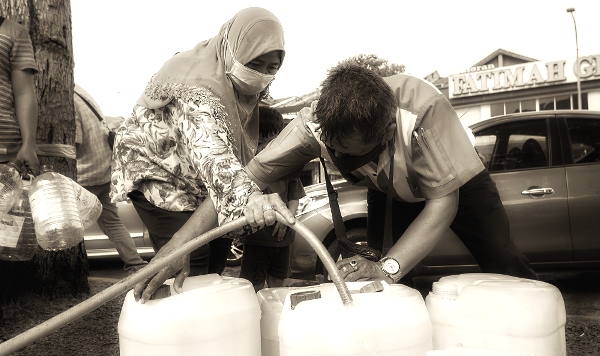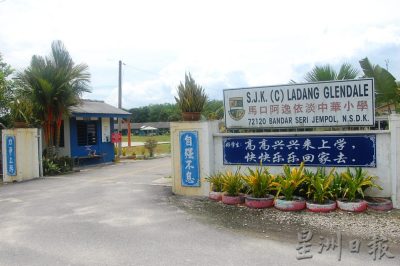Sin Chew Daily
The source of Sungai Selangor was severely contaminated due to the effluents from a factory in Rawang on September 3. As a result, Rantau Panjang and Sungai Selangor phases 1, 2 and 3 water treatment plants stopped operating, thus disrupting the supply of clean water to over 1.2 million households in seven districts in Klang Valley.
In addition to ordinary residents, businesses which require clean water supply such as restaurants, hotels and manufacturing industry were unable to operate as usual. The total loss caused by the river pollution is indeed hard to estimate.
We can reasonably suspect that the factory involved could have been secretly discharging toxic industrial effluents into the river for some time, but probably due to "misjudgment", it discharged excessive volumes of effluents into the river this time. We really have no idea how much toxin we have ingested in the past. No one can provide an answer, and we are quite sure this is not the only factory that is doing the same thing in this country!
Environment and water minister Tuan Ibrahim Tuan Man said the government would prosecute the four arrested owners of the heavy machinery maintenance workshop under the relevant laws. This is the second time the said business has committed the similar offense. Last time, tt was only fined RM60,000, far too lenient for a serious crime that has impacted the lives of millions of residents and local businesses.
As a matter of fact, according to the Environmental Quality Act 1974, a culprit could be fined up to RM500,000 or five years in jail, or both, upon conviction.
The government should not pass down such a lenient fine penalty on such a serious crime that has imperiled the health of Malaysians, but should hand down a much heavier penalty in order to effectively stop illegal waste dumping activities once and for all.
Water pollution, air pollution and illegal dumping of toxic and hazardous waste are nothing new in this country. Very often such activities are tolerated, so long as the volumes of waste and effluents are not substantial enough to cause severe environmental hazards, or do not make newspaper headlines!
From BN to PH and now PN, it is obvious that the government has extremely low environment crisis awareness.
Last March, the pollution of Sungai Kim Kim in Pasir Gudang, Johor, sickened around 4,000 nearby residents, forcing 111 schools in the vicinity to close. But what about the outcome of the investigation and the final verdict?
Sungai Kim Kim has actually been contaminated with chemical effluents for over ten years. There used to be a foul smell but local residents and even the civil servants did not take it too seriously so long as nothing very bad happened to them.
To stop the dumping of hazardous waste into our rivers and water sources, it is utterly essential for the authorities to prevent industrial operators from contaminating our environment and rivers. All Malaysians must keep a close watch on the potential offenders!
First of all, the government must step up its enforcement efforts and decisively shut down all industrial operations in water catchment areas, including livestock and agriculture industries. Factories that violate environment regulations must be permanently shut down and no pollutant-emitting operations are ever allowed or approved near water sources.
Secondly, the environment ministry must explicitly set pollution standards on par with the most stringent global standards. Heavily polluting industrial areas must be set aside for polluting industries to facilitate centralized management of industrial effluents, toxic gases and hazardous waste disposal with regular or random inspections from environment experts, as is being done in Taiwan.
Thirdly, members of the public should be encouraged to report environment violators by offering rewards. This will significantly improve our environment.
As the country's economy advances, we need to ban any industrial operation that will further burden our environment. Companies which cause the pollution must be made to bear the cost, or the entire nation will have to suffer the consequences.
Many polluting industries have since been relocated from developed countries to developing countries.
In December 1984, the disastrous methyl isocyanate gas leak from the Union Carbide pesticide plant in Bhopal, India, killed some 25,000 people directly. Another 550,000 people were indirectly killed by the accident while 200,000 suffered permanent disability as a consequence.
Such a factory was banned in the United States, and a negligence could wreak havoc comparable in scale to an atomic bomb! India had allowed America's high-risk factory to operate in that country because of the tremendous job opportunities it would create. In the end, India paid a very hefty price for the wrong decision.
The rare earth plant in Malaysia today is also posing significant environmental threat to us, but we opted to take it!
The water pollution incident last week could only be tip of the iceberg. Malaysians must work together hand in hand to create a more livable environment for all.

ADVERTISEMENT
ADVERTISEMENT


































